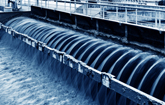Sanitation and Water Must No Longer Play Second Fiddle to Other Priorities
Countries with the greatest unmet sanitation and water needs most often receive little or no aid
WASHINGTON, April 22 /PRNewswire-USNewswire/ -- Between 1997 and 2008, aid commitments for sanitation and water fell from 8% of total development aid to 5%, lower than commitments for health, education, transport, energy and agriculture, according to the latest UN-Water Global Annual Assessment of Sanitation and Drinking-Water (GLAAS) report, launched yesterday by UN-Water and the World Health Organization (WHO).
This drop occurred despite compelling evidence that achieving the water and sanitation target of the Millennium Development Goals (MDGs) would lower health-care costs, increase school attendance and boost productivity. Despite these clear benefits for human and economic development, many countries and donors are still not allocating sufficient attention and resources to water and sanitation.
"Neglecting sanitation and drinking-water is a strike against progress. Without it, communities and countries will lose the battle against poverty and ill-health," said Dr. Maria Neira, WHO Director of Public Health and Environment.
Improved access to sanitation and water produces economic benefits that range from US$ 3 to US$ 34 per US$ 1 invested, increasing a country's gross domestic product (GDP) by an estimated 2% to 7%.
"Unsafe water, inadequate sanitation and the lack of hygiene claim the lives of an estimated 2.2 million children under the age of 5 every year. Of these deaths, 1.5 million are due to diarrhoea, the second leading contributor to the global burden of disease," said Dr. Neira. "The impact of diarrhoeal disease in children under 15 is greater than the combined impact of HIV and AIDS, malaria, and tuberculosis," she added.
The findings from the UN-Water GLAAS report will be presented at the first annual High Level Meeting of Sanitation and Water for All, hosted by UNICEF on 23 April in Washington, DC. The High Level Meeting provides a forum for Ministers of Finance from developing countries, accompanied by Ministers responsible for sanitation and water, and representatives from donor countries to gain a greater understanding of the linkages between water, sanitation, and economic growth, in order to commit the appropriate resources, as well as to promote a culture of mutual accountability, partnership and shared responsibility.
At this groundbreaking event, governments, donors, multilateral agencies, and civil society organizations will discuss challenges, share best practices and commit to bringing safe drinking-water and adequate sanitation to the unserved. The participants will focus on the UN-Water GLAAS recommendations: greater political prioritization for sanitation and drinking-water, better resource targeting, strengthening of systems, and development of stronger partnerships at all levels.
"This high level meeting represents a watershed in our sector. As a global partnership, Sanitation and Water for All will involve the people who make decisions about investments, and who can change the outlook for the sector. We firmly believe giving priority to sanitation and water and tracking our progress together will aid development and give new hope to countries who struggle to reach their poorest citizens, including vulnerable children, with these essential services," said Ms. Clarissa Brocklehurst, UNICEF Chief of Water, Sanitation and Hygiene (WASH).
"UNICEF is delighted by the enthusiastic response we have had from invitees, and we look forward to a landmark first meeting with 35 ministers from 20 developing countries and 12 major donors," she added.
"UN-Water is proud that the GLAAS report will help drive change in the sector, and our members are poised to support the work of development partners and members states," said Dr. Zafar Adeel, who chairs UN-Water, a group of 27 UN organizations working on various aspects of water.
About Sanitation and Water for All
Sanitation and Water for All is a global partnership aimed at achieving universal and sustainable access to sanitation and drinking-water for all, by firmly placing sanitation and water on the global agenda with an immediate focus on achieving the MDGs in the most off-track countries.
Please visit:
http://www.who.int/water_sanitation_health/glaas
http://www.unwater.org/activities_san4all.html
SOURCE U.S. Fund for UNICEF
WANT YOUR COMPANY'S NEWS FEATURED ON PRNEWSWIRE.COM?
Newsrooms &
Influencers
Digital Media
Outlets
Journalists
Opted In






Share this article